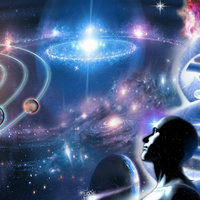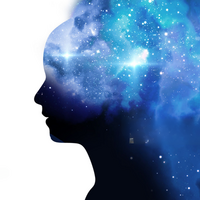
The practice of interpreting dreams by experts may be nearly as ancient as the act of dreaming itself. It's widely understood that all humans, as well as many animals, experience dreams regularly, sparking an enduring fascination with unraveling their causes and meanings.
The practice of interpreting dreams can be traced back to as early as 3000-4000 B.C., evidenced by the recording of dream interpretations on clay tablets. It's believed that many ancient cultures initially struggled to differentiate between the realms of reality and dreams. For them, the dream world often seemed to merge with the physical world, and in some cases, they regarded the dream realm as even more potent than the waking world.
Dream interpretation held such significance in the ancient Greek and Roman civilizations that dream interpreters frequently accompanied generals and other military leaders into battles. Dreams were regarded with utmost seriousness, especially by the Greeks and Romans, who often perceived them as divine messages from their gods.
In ancient Egypt, dreams held religious significance, and priests often served as interpreters of dreams. Hieroglyphics frequently documented dreams among other matters. Individuals with particularly vivid or meaningful dreams were esteemed and granted special status in these ancient societies. Similarly, those who possessed the ability to interpret dreams were believed to receive this gift directly from the gods, earning them a revered position in society.
Dreams are referenced over 700 times in the Bible, highlighting their profound significance to people in biblical times. Many of the most significant books of the Bible and other holy scriptures make mention of dreams and their interpretations.
Frequently, dreams were regarded as a type of prophecy, with individuals interpreting them as omens or cautionary signs, influencing their actions accordingly. Dreams were commonly perceived as omens from deities, messages from spirits, or communications from departed souls. In certain instances, dreams were even considered the handiwork of demons, intended to bewilder and distress the dreamer.
Dreams held such significance that they frequently guided the decisions of political and military leaders, influencing everything from battle strategies to political policies. Additionally, dreams were believed to offer crucial insights to healers, informing the diagnosis and treatment of various illnesses.
Indigenous cultures often regarded dreaming as a direct means of connecting with deities and spirits, a belief that persists in cultures worldwide today. For many, both past and present, the notion persists that during dream sleep, the soul separates from the body to engage with the spirit realm.
The Chinese were among those cultures who held the belief that the soul departs the body during dream sleep. They feared that if a dreamer were abruptly awakened, the soul might struggle to return to the body. Hence, some Chinese individuals remain cautious about the use of alarm clocks. This illustrates how ancient beliefs can persist in the modern era.
Certain Indigenous Mexican and Native American communities uphold this ancient perspective on the significance of dreams, as well as the belief in an alternate realm visited during dream sleep. Within this framework, they hold that their departed ancestors reside in their dreams, able to manifest in various forms such as animals and plants. Consequently, dreams are perceived as a means for connecting with both recent and ancient ancestors, acquiring wisdom and guidance beneficial for their waking lives. Moreover, dreams are viewed as avenues for discerning insights about one's purpose or mission in life.
The perception of dreams underwent a significant shift in the early 19th century, with dreams often being disregarded as mere responses to anxiety, external disturbances, or dietary issues such as bad food or indigestion. During this era, dreams were largely considered devoid of meaning, leading to a decline in interest in dream interpretation. However, the landscape changed with the emergence of Sigmund Freud later in the 19th century. Freud's emphasis on the significance of dreams in the field of psychiatry revitalized the once dormant art of dream interpretation, startling the psychiatric community.





